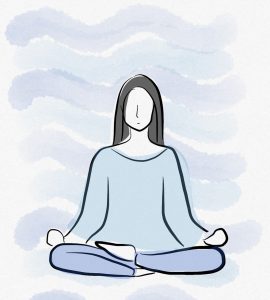
A woman’s independence is often linked to her ability to control her body and her reproductive choices. If women can prevent and plan for pregnancies, they can control not only their bodies but other life decisions. Although the women I interviewed do not necessarily identify with being part of a childfree cultural movement, there is no denying that their individual choices to not parent are part of a choir of voices challenging the expectations of womanhood. One of my participants, Nancy (44), talked about never wanting children and wondered if there was something wrong with her because she never felt the ticking clock:
“Um, I have never wanted children. That’s something that I have known. Gosh, since I was young. And I’ll you know, and I think norms are cultural norms. And society kind of puts a lot of pressures. And I know, I’ve gone through a stage in my life where I’ve questioned it. Even when I was 38-39. I remember seeing my, my doctor and I was like, can you do like a hormone check to maybe like, check, because I’ve never had this like, ticking clock. I just never had had this desire to have children. I love children, I was a school counselor. But personally, I’ve never had a desire to, to have children.”
The women in my study are not women torn between motherhood and profession. Most did not feel they had to make a choice between professional goals or their desire to be mothers. Most of them never wanted to be mothers, nor did they see having children as essential to their lives. They wanted to pursue a life of independence on their terms, and motherhood was incompatible with that lifestyle. Sam (38) also felt she was not emotionally healthy enough to raise a child and thought it would be selfish of her to raise a child without first raising herself:
“Um I don’t want to put another being through what I went through, and I don’t feel
healthy enough that I actually have the capacity to raise a human being. So that’s part of it. Um, that’s absolutely part of it. And like, you know, I think my mother never should have had kids, like she wasn’t capable of raising and caring for beings the way they need. Um, and then the other part is, like, you know, I would call it somewhat jokingly being selfish, but like, I have so much work to do re-raising myself, and putting it like, that I didn’t have as a kid … I am the one, the only one I can get that from. So, I’m already raising a person and it’s me.”
Sam may have been joking (somewhat), but the role of nurturing can be multifaceted. Sam is not incorrect to acknowledge the role we play in nurturing ourselves. For some people, it may take a lifetime of self-care to make them whole. The women in my study are not all carefree following ducks in a park. Some of them are responsible for others in their lives. Two of the women have power of attorney for ailing parents, and others are caretakers for a parent or other family member. They are not immature or selfish. Some of the women in my study took care of others when they themselves were still children and had adult responsibilities. Although this has been viewed as a form of selfishness, I contend that these women have every right to live an autonomous life. Caring for one’s self, including physical and mental health, should not be interpreted as being selfish in the conventional sense of the word. These women have chosen to focus on self-care.
A woman’s body is the battlefield for which the cultural war of motherhood vs. non-motherhood is waged. Yet, this is a war where no one can win. Society has created divisions within divisions, and the divisions of women who are mothers and those who are not mothers are seemingly endless: women who gave birth vaginally or mothers who had cesarean births, women who breastfed or women who bottle fed, women who received an epidural and those who did not, women who carried their baby in their body or women who used a surrogate, and this does even begin to address the women who do not have children voluntarily and the women who wanted children and were not able to conceive. Even the terms childless and childfree are both problematic. These create a moral division between women who want to have children and could not, and women who never wanted children.
Motherhood is not the only important role women can play in society. Single and childfree women are not expendable. Women can fulfill a myriad of roles that help make society better, even if they are not wives and mothers. I argue that womanhood and motherhood are not synonymous and they should be viewed as independent identities. This separation would allow for a broader landscape to describe and define women who choose not to have children. They have chopped down their own trees, cleared the brush, and they are entitled to live a life for which they have created the path for. They are not asking others to live with their choices, nor do they want to be forced to live by the decisions of others. Therefore, there is no need to feel pity for the childfree woman. She has bought her own bed, assembled it herself, and is perfectly content to sleep in it alone – if she chooses.
Kimberly Martinez Phillips is a Ph.D. Candidate in the Sociology Department at Memorial University of Newfoundland and Labrador. Her dissertation studies the lives of childfree, never-married single women of color. Follow her on Twitter @ichoosefeminism

Comments